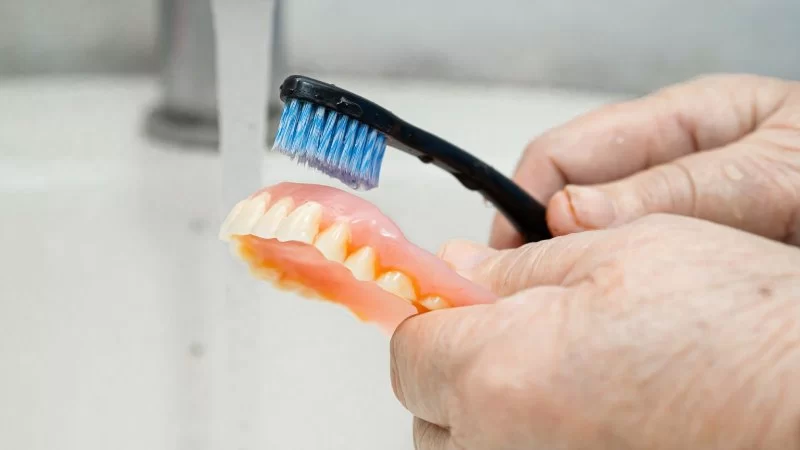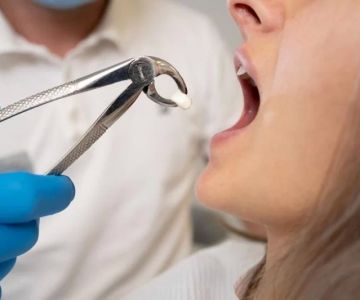
- how-to-clean-dentures-properly-basics — essential-care-steps
- daily-cleaning-routine-for-dentures — maintaining-freshness
- deep-cleaning-methods-for-stubborn-stains — long-term-maintenance
- common-denture-cleaning-mistakes — what-to-avoid
- real-life-case-denture-damage — how-proper-care-prevents-issues
- how-professional-guidance-helps — expert-support-benefits
How to Clean Dentures Properly: Understanding the Basics
Learning how to clean dentures properly is one of the most important steps in maintaining a healthy mouth. Many people assume dentures can be cared for the same way as natural teeth, but dentures have different materials, different cleaning needs, and different risk factors.
I once met an older gentleman during a community dental education event who insisted that rinsing his dentures with hot water was good enough. He genuinely didn’t realize that high temperatures can distort denture shape. It took a quick demonstration with a heat-sensitive mold to show him how delicate dentures actually are. That moment highlights something many denture wearers never hear: dentures require a dedicated cleaning routine that protects both the prosthetic and your oral tissues.
For anyone wanting long-lasting dentures and a more comfortable daily experience, understanding proper cleaning steps is essential. If you need personalized recommendations for products or professional care, you can always explore options through Family Dentistry Online.
A Daily Cleaning Routine That Keeps Dentures Fresh
A well-structured routine helps prevent odor, staining, plaque buildup, and irritation to gum tissue. While every individual's habits differ, a reliable three-step process tends to work for most denture types.
1. Remove and Rinse After Meals
Rinsing may sound simple, but this one habit removes a surprising amount of food debris. Gently swish lukewarm water over the denture surfaces, avoiding hot temperatures that could warp the acrylic. Many dentists encourage doing this even when dining out — it takes seconds and prevents odor-causing bacteria from settling.
2. Brush Gently With a Soft Denture Brush
Unlike natural teeth, dentures require a softer brush and a non-abrasive cleanser. Standard toothpaste contains ingredients that can scratch acrylic, causing tiny grooves that trap bacteria. Denture-specific cleaners are formulated to remove residue without eroding the surface. It’s also helpful to brush on top of a towel or basin of water to avoid cracks if the denture slips from your hand.
3. Soak Overnight for Full Hygiene
Most dentures need moisture to retain their shape, which is why soaking is essential. Denture-cleaning solutions dissolve particles a brush can’t reach. Many people compare the process to marinating cookware overnight — what seems “clean enough” beforehand looks very different once the solution extracts hidden buildup.
If you’re unsure which soaking solutions are safest for your specific dentures, Family Dentistry Online provides options suited for different materials and sensitivity levels.
Deep Cleaning Methods for Stubborn Stains
Even with perfect daily care, dentures can develop stains from coffee, tea, wine, or certain foods. When this happens, deep-cleaning methods help restore brightness safely.
1. Effervescent Cleaning Tablets
These tablets release oxygen bubbles that break down plaque film and discoloration. They’re particularly useful for older dentures or for users with difficulty brushing thoroughly.
2. Ultrasonic Denture Cleaning Devices
These devices are increasingly popular. They use vibration waves to remove buildup from small crevices that brushing alone cannot reach. The method is gentle yet highly effective, and many people appreciate it for its convenience — especially individuals with arthritis or reduced hand strength.
3. Professional Deep Cleaning
Dental professionals use specialized solutions and tools that are not available to consumers. A scheduled professional cleaning every 6–12 months prevents long-term staining and ensures proper fit. Many people also appreciate the peace of mind that comes with knowing a qualified expert has checked the structural integrity of their dentures.
Common Denture-Cleaning Mistakes and How to Avoid Them
Despite good intentions, several routine behaviors can damage dentures or reduce their lifespan. Avoiding the most frequent mistakes helps protect both your investment and your comfort.
1. Using Whitening Toothpaste on Dentures
Many whitening products contain peroxide formulas intended for enamel, not acrylic. On dentures, these ingredients cause micro-abrasions and uneven texture, leading to faster staining.
2. Cleaning With Household Cleaners
Bleach, dish soap, and other household chemicals might seem useful but can degrade denture materials or irritate soft tissues. Even diluted bleach can cause whitening or structural weakening over time.
3. Wearing Dentures Overnight
Continuous wear restricts airflow, promotes bacterial growth, and increases the risk of denture stomatitis. The gums need time to rest, and dentures need time to soak, making overnight removal essential for health and durability.
A Real-Life Case: When Improper Cleaning Leads to Damage
A well-known story shared on senior-care forums involved a woman who soaked her dentures in hot water mixed with vinegar every night for years. Her intention was good — she wanted them extra clean — but the result was severe warping. She began experiencing difficulty chewing and even developed tongue sores because of the altered fit.
Her case went viral because many denture wearers didn’t realize homemade solutions can sometimes do more harm than good. Once she received a new pair and proper cleaning instructions, her discomfort disappeared. Her story is a helpful reminder: reliable cleaning methods protect not just the prosthetic but your overall oral health.
How Professional Guidance Can Make Denture Care Easier
Even with perfect daily habits, dentures eventually show signs of wear. Routine checkups allow a dentist to assess fit, identify pressure spots, and recommend safe cleaning products. Professional advice becomes especially valuable for first-time denture users, who often feel unsure about what’s normal and what needs attention.
Whether you need help selecting cleaning tools, checking for signs of damage, or maintaining comfort over the years, resources from Family Dentistry Online can guide you toward the right products and services. Proper care becomes much easier — and far more effective — when supported by expert knowledge.







 Butler Pike Family Dentistry4.0 (247 review)
Butler Pike Family Dentistry4.0 (247 review) B&T Dental4.0 (302 review)
B&T Dental4.0 (302 review) Fontaine Dental Group | St John4.0 (177 review)
Fontaine Dental Group | St John4.0 (177 review) Eastern Dental4.0 (551 review)
Eastern Dental4.0 (551 review) Nak4 Orthodontics Arlington Heights4.0 (253 review)
Nak4 Orthodontics Arlington Heights4.0 (253 review) Dental365 - Bethpage4.0 (456 review)
Dental365 - Bethpage4.0 (456 review) The Importance of Oral Health Education During Pregnancy for a Healthy Pregnancy
The Importance of Oral Health Education During Pregnancy for a Healthy Pregnancy Best Tips for Brushing Your Teeth Properly for Healthy Gums: Essential Techniques for Oral Health
Best Tips for Brushing Your Teeth Properly for Healthy Gums: Essential Techniques for Oral Health Why Skipping Dental Checkups Can Lead to Bigger Oral Health Problems
Why Skipping Dental Checkups Can Lead to Bigger Oral Health Problems Advantages of Porcelain Dental Restorations
Advantages of Porcelain Dental Restorations How Can Diabetes Cause Tooth and Gum Problems? Preventing and Managing Oral Health Issues
How Can Diabetes Cause Tooth and Gum Problems? Preventing and Managing Oral Health Issues Healthy Habits for Promoting Good Oral Health and Hygiene: Tips for a Healthy Smile
Healthy Habits for Promoting Good Oral Health and Hygiene: Tips for a Healthy Smile